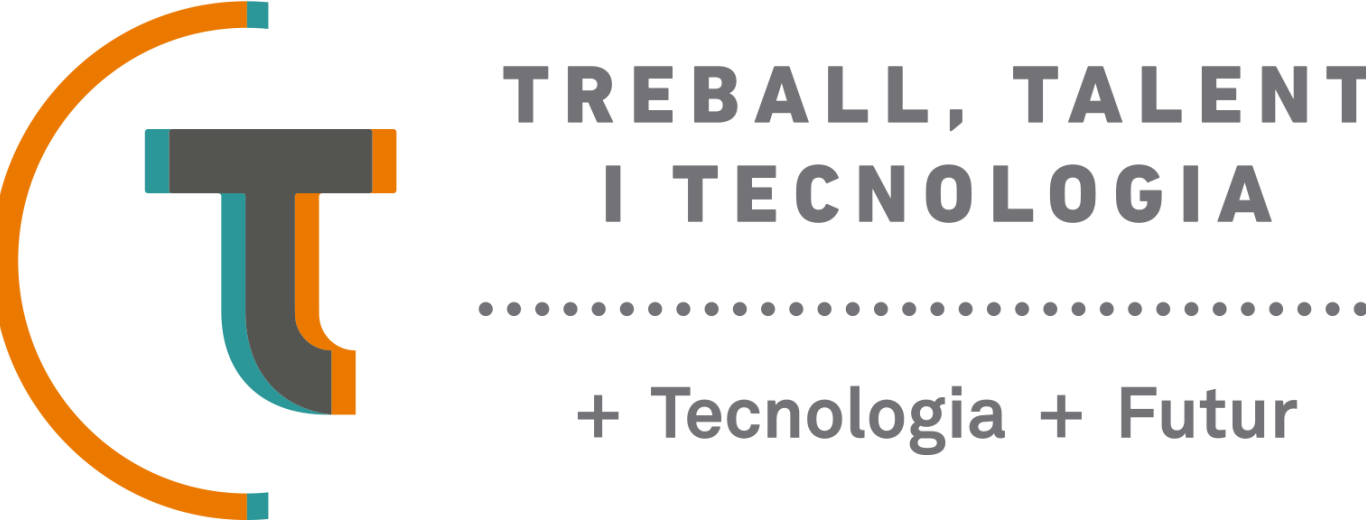Treball, Talent i Tecnologia (TTT)

Objectius del projecte
L’objectiu del programa Treball, Talent i Tecnologia és promoure el treball digne, la millora competencial del talent local i el creixement econòmic sostenible a través de la tecnologia.
El programa impulsa la tecnologia i l’acompanyament a la transició digital de persones, empreses i institucions cap a un model socioeconòmic sostenible, inclusiu, competitiu, solidari i igualitari.
Els resultats esperats del projecte són:
- Augmentar la inserció laboral i contribuir a la millora de l’ocupabilitat de la força de treball (persones en situació d’atur, ocupades i inactives) cap a les ocupacions amb major demanda de competències digitals.
- Implicar el teixit productiu en el codisseny i la coexecució dels projectes territorials per optimitzar el seu impacte.
- Promoure aliances i/o compromisos institucionals amb visió estratègica per alinear i optimitzar l’impacte d’iniciatives locals, amb la col·laboració publicoprivada i la cooperació interadministrativa.
- Millorar la capacitació en habilitats digitals i en l’anàlisi i el coneixement de l’entorn de les tecnologies associades a la indústria 4.0 dels equips municipals que han de prestar servei als seus usuaris potencials (persones i empreses).
Descripció del projecte
El programa Treball, Talent i Tecnologia s’ha dissenyat amb el convenciment de la necessitat d’impulsar polítiques de mercat de treball de caràcter integral, pal·liatives per fer front a la situació actual, però també preventives i proactives. Així, el TTT té la finalitat de fomentar que els ens públics locals destinataris duguin a terme actuacions de promoció de l’ocupació i de reactivació econòmica, que es concretin en el desplegament d’un pla integral basat en l’impuls de la tecnologia i l’acompanyament a la transició digital de les persones i les empreses. Es pretén contrarestar els efectes de la crisi ocasionada per la covid-19 i, a la vegada, contribuir a la millora de la competitivitat de les persones i de les empreses.
El desplegament del programa s’articula en 4 línies d’actuació:
- Anàlisi i diagnosi de la situació actual.
- Aliances estratègiques per al desenvolupament del pla integral.
- Desenvolupament competencial de les persones.
- Impuls de la capacitat productiva i transformació del teixit empresarial.
Àmbits d’intervenció
Líders del projecte
Per saber-ne més
Contacte
Àrea de Desenvolupament Econòmic, Turisme i Comerç de la Diputació de Barcelona
Recinte Maternitat
Pavelló Mestral (Abans Pavelló Lactància), planta 2
Travessera de les Corts, 135
Barcelona (08028)
934 022 538


